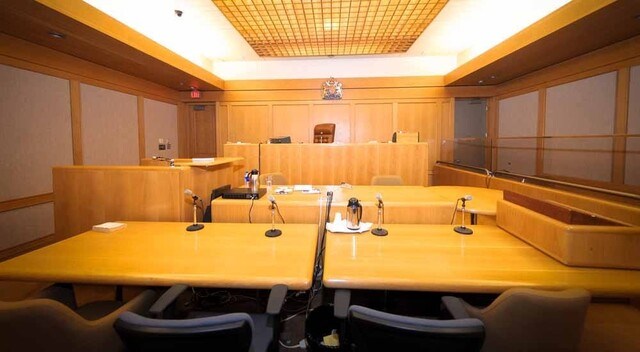A Provincial Court judge erred in ordering a man to spend 90 days in jail on weekends for invitation to sexual touching, according to a Crown application to a judge in B.C. Supreme Court on Tuesday, Dec. 17.
Two Crown lawyers told Justice John Harvey in Smithers that Judge Garth Smith, who sentenced Briar Gerrydean Malloy Nikal, made errors in principle by not considering aggravating factors such as abuse of trust and moral blameworthiness.
Nikal, guilty of the Oct. 18, 2022 offence in Smithers, received the 90-day minimum sentence upon summary conviction when Smith gave his oral verdict on June 11. Under the Criminal Code, Nikal could have been sentenced for as much as two years less a day on summary conviction.
Nikal’s sentence also included probation during the period of intermittent incarceration and two years probation afterward, plus a 10-year ban on firearms and requirement to provide a DNA sample.
On the abuse of trust issue, Crown counsel Emily Rogers Beggs said there was a significant age gap: Nikal was 32 at the time and the victim under 16. The victim was away from home, vulnerable and dependent on Nikal. A parent of the victim had entrusted the victim with Nikal, “which came with the expectation of caring for the safety of the child.”
Details of the victim’s identity are covered by a publication ban.
Beggs said the judge did not consider the fact the sleeping victim woke up to discover Nikal’s offending conduct, “and the act of physical control of the victim in this offence and the foreseeable impact of the harm to the child.”
Crown lawyer Stephanie Lacusta said the judge’s second error in principle was failing to adequately consider Nikal’s personal responsibility for the offence.
“The point here is that the only consideration of moral blameworthiness of the offender is when the sentencing sentencing judge relies on a self-reported brain injury to reduce the offender’s moral blameworthiness, without any medical evidence and without any consideration to these seriousness of the offence,” Lacusta said. “This is a failure on the judge’s part to account in the sentence for the level of culpability of these offences.”
Nikal’s defence lawyer, Ian Lawson, said Smith was correct in crafting an intermittent, minimum sentence for his client, who has Indigenous heritage. A suitable alternative, he said, even if it includes time in jail.
He also argued that the Crown did not prove Smith’s sentencing decision was unreasonable.
“At any appeal, there's always pot shots taken at the reasons — well, the judge didn't mention this, or he didn't spend enough time on this issue, or there's no mention of this circumstance, and so on,” Lawson said. “And, as I've been hearing my friends, that's really what the main pitch is.”
Harvey scheduled Jan. 9, 2025 for a decision.



